Home Hi-Tech Android World ,,,,,Versa, Fitbit's new smartwatch, is the company's first model to feature a look and trend much closer to a softer casual lifestyle than movement-based wellness.
The basic idea is that Versa does not aim to keep you in shape, for that there is the most gifted Ionic, but to make you feel good: indeed, to hear the Italian protagonists of Fitbit make you feel better.
Of course, feeling better means many things: a system to relax, a controlled diet, constant monitoring of sleep and the female cycle, a discreet system to suggest when to move and to reward those who do more activities.
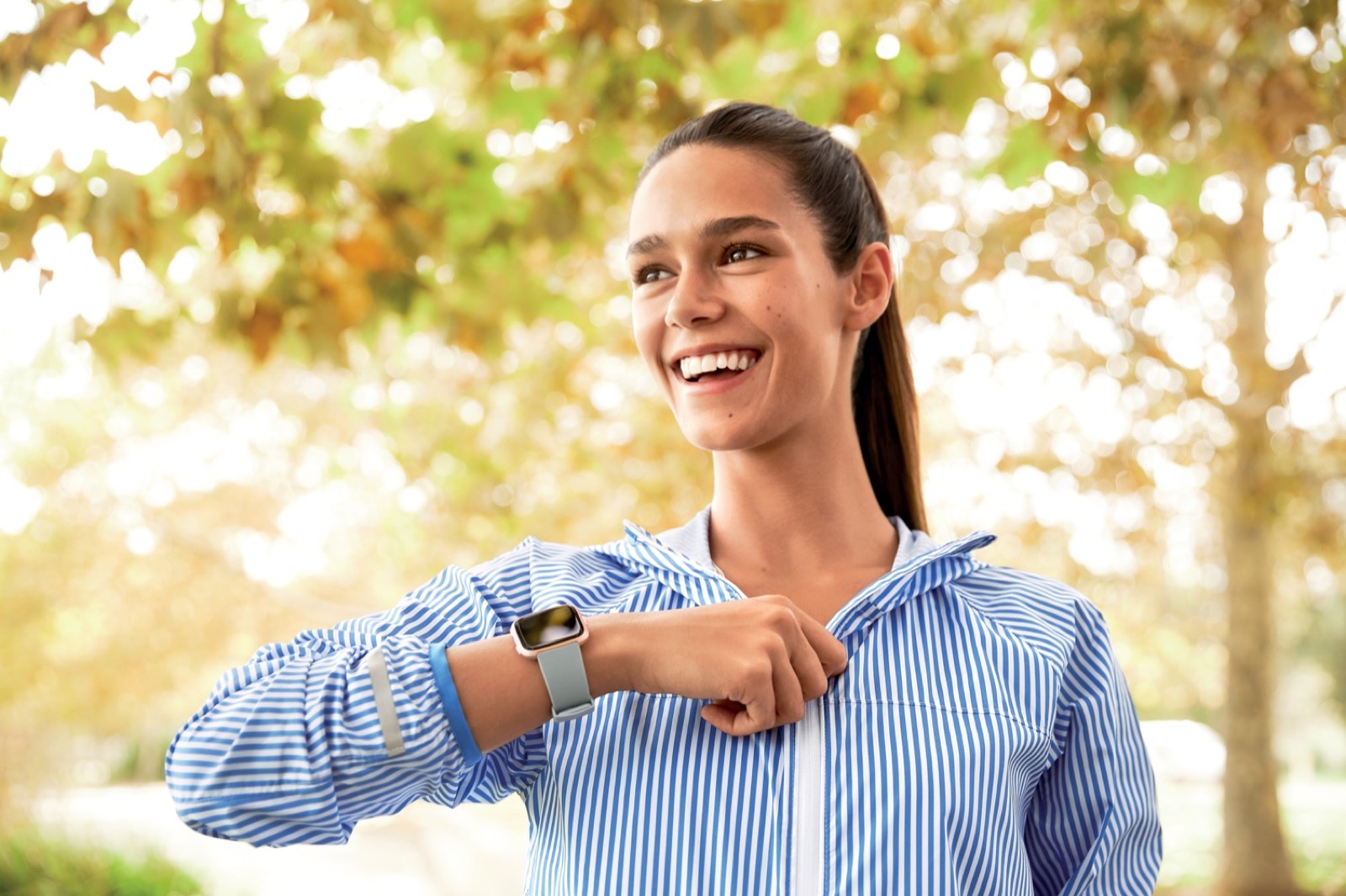
Each of us looks for the best practice, even more than one if possible to feel better with your body, and Fitbit, with Versa, offers them all, together with a series of smart features that make the watch, if not a sportwatch because it would be exaggerated, for sure a smartwatch.
Review
About Fitbit
Credit should be given to Fitibit not only being consistent with itself in the course of the evolution of its identity but also knowing how to draw innovative and concrete guidelines, in parallel and in some ways more incisive and concrete than what Apple did up to now, which for many is the brand that most of all has opened up the wrist computer market.
Precisely for this reason the Versa review does not focus only on the characteristics of the smartwatch, which are also important, but on the reason that will prompt users to consider it both as an alternative to Apple Watch (which here is probably the fiercest rival) and as an evolution of the bracelets. Alta and Charge 2 for those who are already a Fitbit customer but want to grow from a technological point of view.
Versa not only aims to make you feel better, but to explain how to do it in many small steps that emerge from daily reports, from assistance in sport, from medals, from suggestions detected and based on activity and from an App that is the best there is on the market.
There is still something to file, but we liked the result very much.
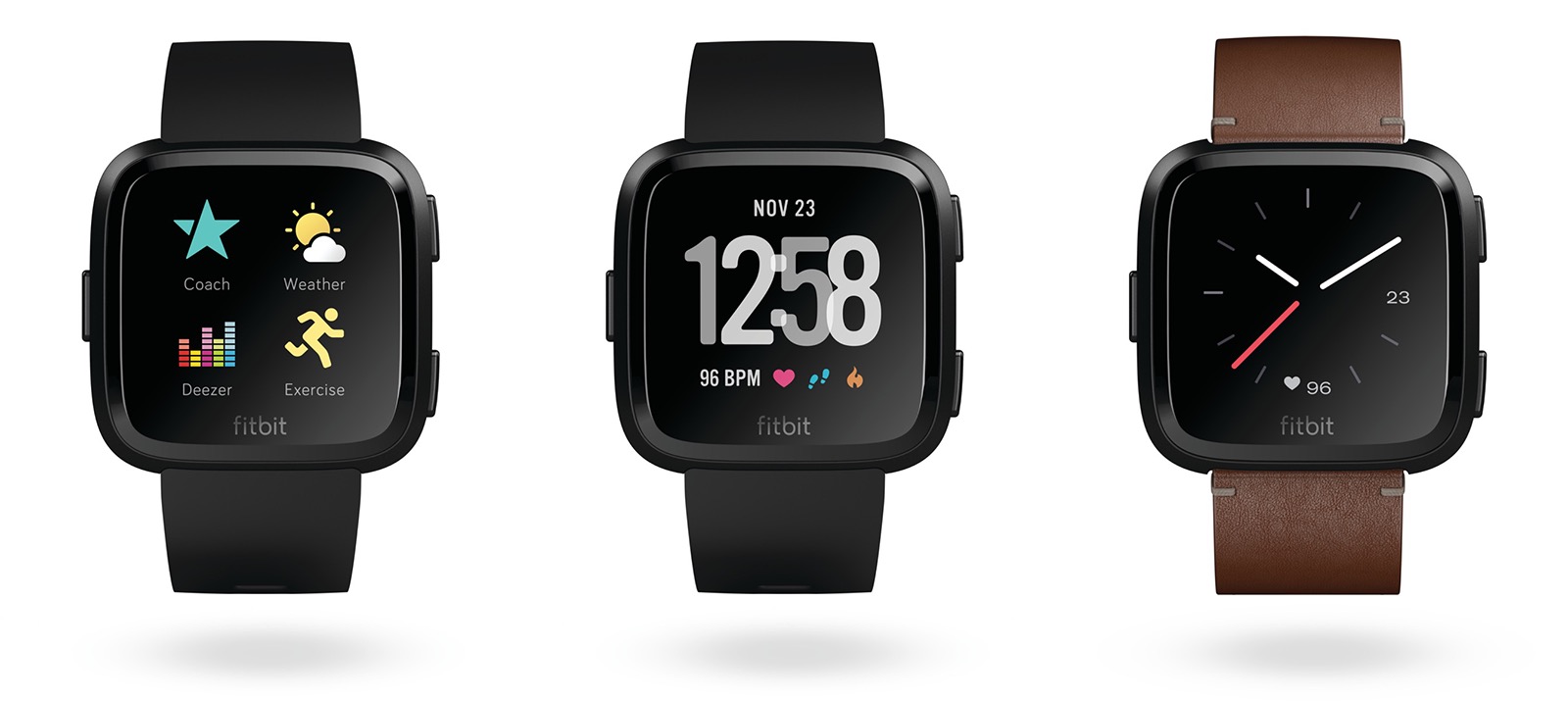
Here is Versa, out and in the box
The box is in pure Fitbit style, and this is fine if you are fond of the brand, but if you don't know it, the impression it gives is still very much of a technological accessory and a little fitness, while once on the wrist it is clear that Versa aims at a decidedly more casual user.
Inside we find the device already own of a strap (but there is another larger one in the box for those with a generous wrist), the charging base with USB-A connector on one side and the cradle with proprietary connector from the 'other.
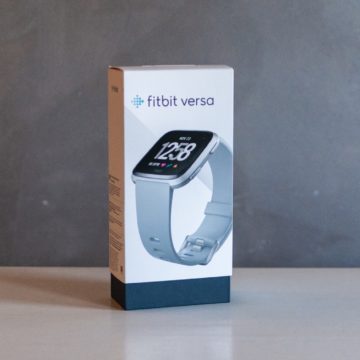
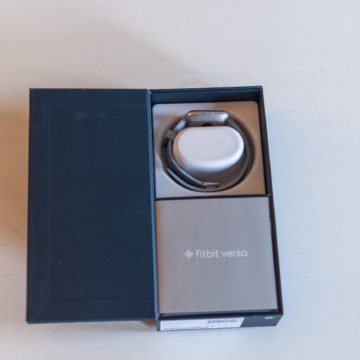
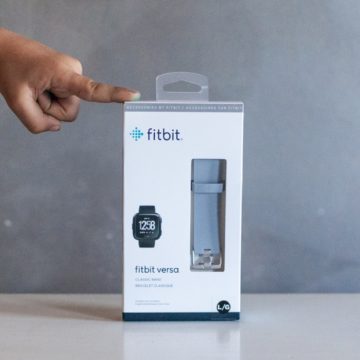 The packaging of an additional Versa bracelet , here in rubber
The packaging of an additional Versa bracelet , here in rubber 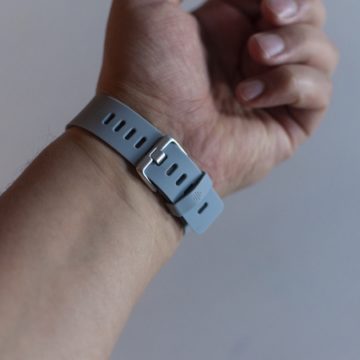
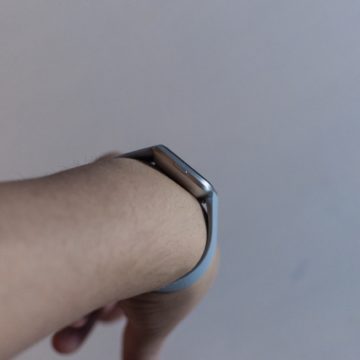
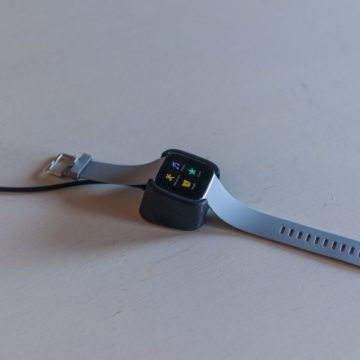 The Versa while charging, in its special base
The Versa while charging, in its special base
On this point comes the first real disappointment, because several Fitbit bracelets have arrived in our wrists, each with a different charger: while understanding the space requirements, we would have definitely preferred a single connector or at least the same as that of the Ionic, the older brother, in order to optimize the use of cables in the bedside table.
Once worn, Versa asks for the installation of the Fitbit App (for Android and iOS) and a few minutes for configuration, which we recommend to carry out under the Wi-Fi network in order to speed up the firmware update operations, which if carried out via Bluetooth they last much longer.
The shape is rounded and very different from the edges of the Ionic: the case is made of metal and available in three colors, while the attachment of the strap is standard, so if you get tired you can order one of the official Fitbit straps (in metal or in rubber or fabric), or one of your choice to buy anywhere, even if not branded Fitbit.
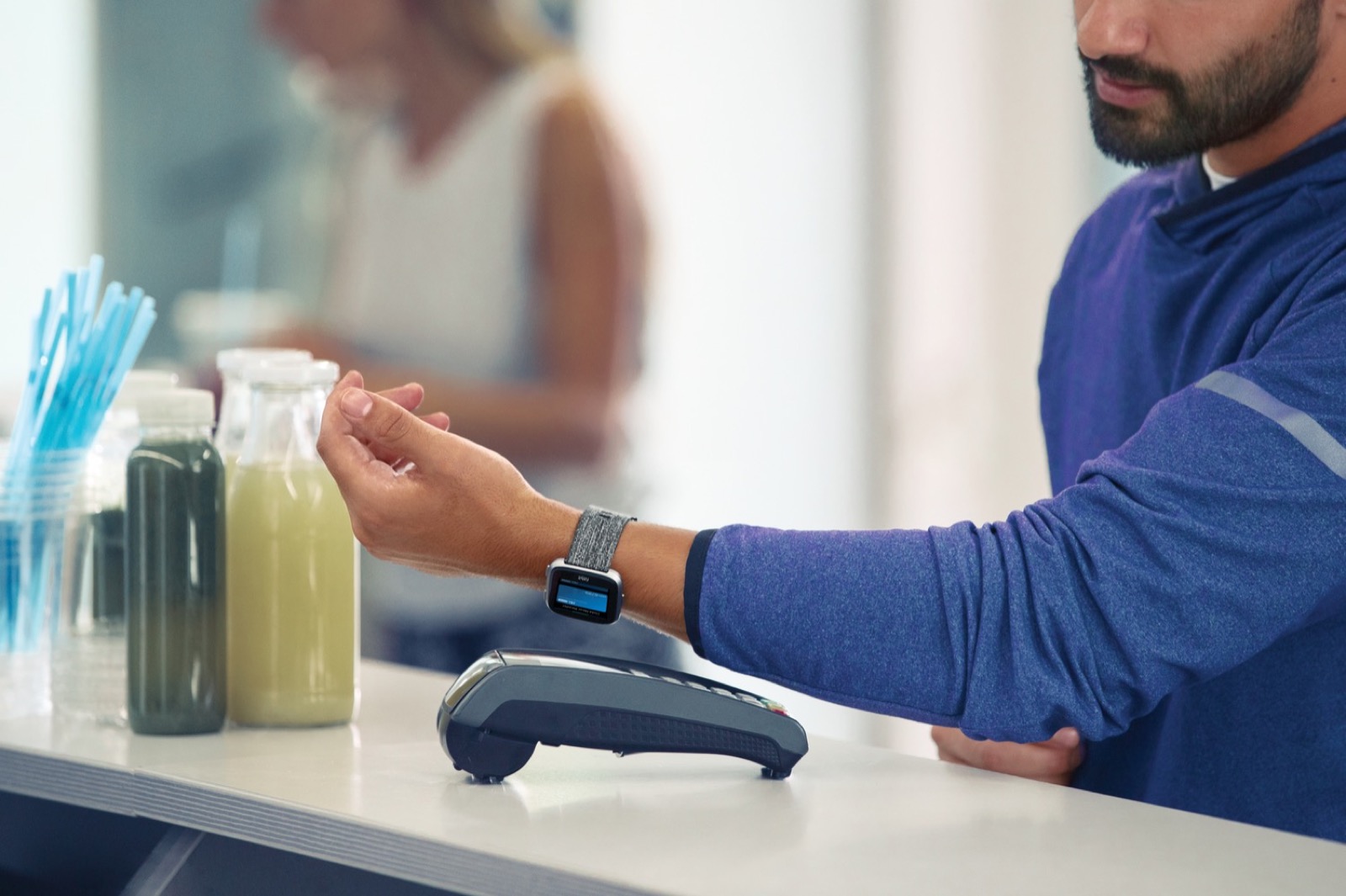 Like Ionic, Fitbit pay is also available for Versa
Like Ionic, Fitbit pay is also available for Versa
The display is large and all in black glass, even if you just move your wrist to immediately notice where the display ends and the case begins.
The shape of the display is square, probably because managing a reading in a round display is still more difficult and involves an inevitable loss of space, which here is optimized to the maximum between design and available information.
It fits very well on the wrist, we tried the model in metallic color, with the standard rubber strap first and then with the metal strap, much better from the point of view of appearance.
Versa is light, and the (unique) size is an ideal compromise between the need for space and bulk on the wrist: we liked the buttons, which never activated with involuntary movements.
The battery is very good: the duration of four days declared by Fitbit was barely touched, but on average we say about three days and something, but this value could depend a lot on the type of activity we do.
Finally, the display, very beautiful and with lively colors, is always visible, both in the dark and in the light and with a good size (34.0 mm diagonal).
Just below the heartbeat sensor, which thanks to the proprietary PurePulse technology allows you to record information on circulation constantly throughout the day.
The GPS is missing (instead on the Ionic model): during activities Versa uses that of the smartphone in shared mode, if it is present and available.
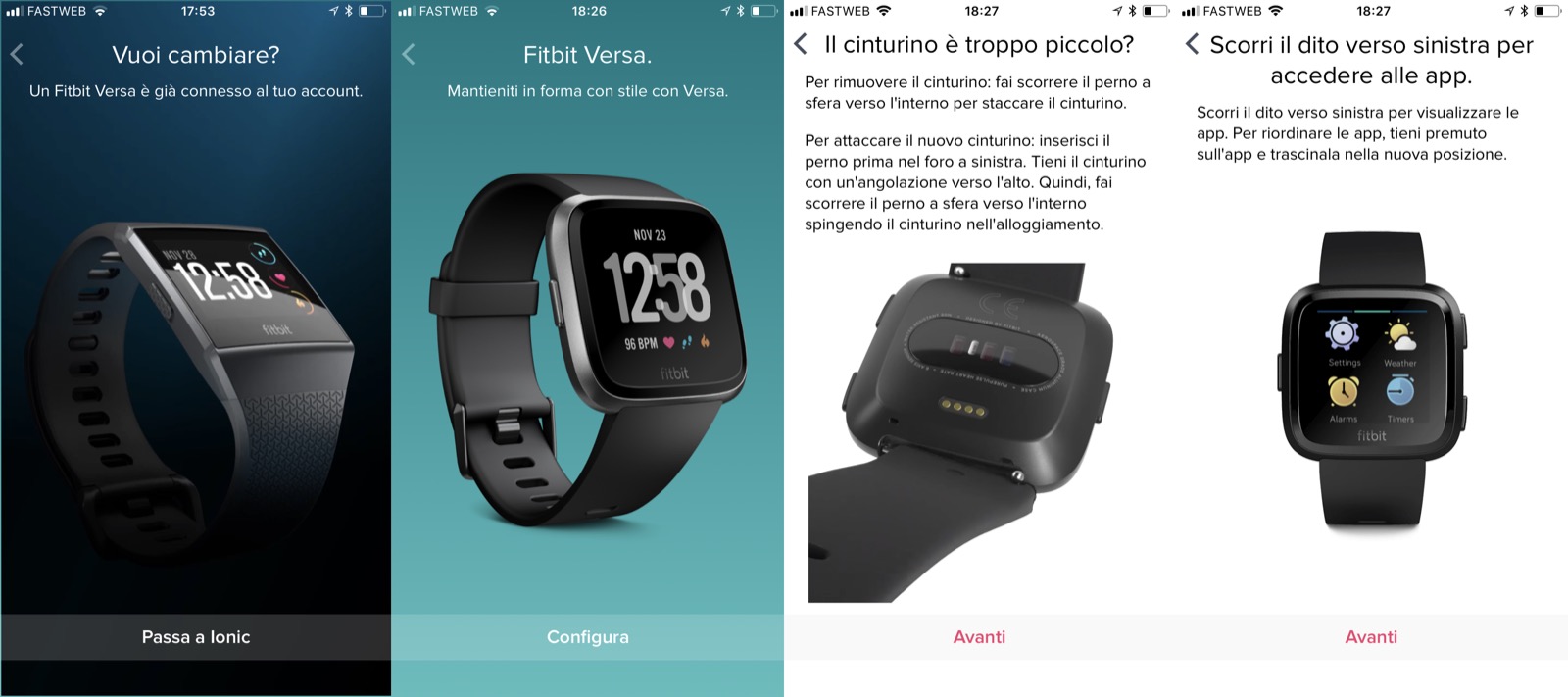 The early pairing steps of Versa, here on iPhone: oddly enough, the App allows you to keep other Fitbit bracelets but not Ionic, if you have both you cannot use them together
The early pairing steps of Versa, here on iPhone: oddly enough, the App allows you to keep other Fitbit bracelets but not Ionic, if you have both you cannot use them together
Display, first surprise
The dimensions of the Versa are very small, and considering the battery life of four or five days it seems almost a miracle that the display is so clear.
Although Versa has Pebble technology in its DNA, the display is LCD and the work was commendable because the result is very nice considering the autonomy.
The decision to focus on a series of very interesting watch faces, mostly exclusively, is also very nice: Fitbit's desire to attack the casual market is strong and the dials are very reminiscent of this trend.
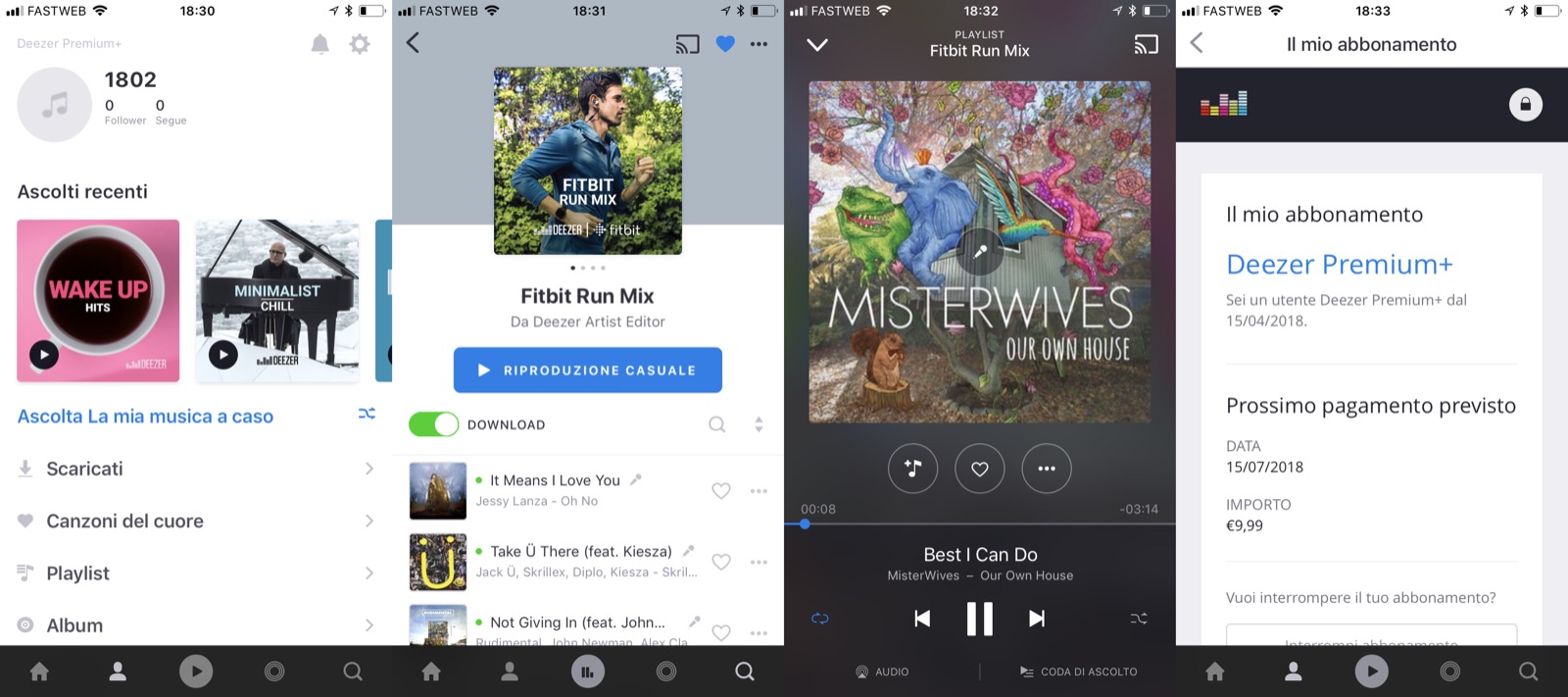 The Deezer App, here on the iPhone, is on offer for 90 days with the purchase of Versa, but you can also use it alone.
The Deezer App, here on the iPhone, is on offer for 90 days with the purchase of Versa, but you can also use it alone.
Colors, very large fonts, liveliness are a surprise for a brand that seemed to focus on sobriety until now (straps aside): inside Versa there are many ideas, such as a series of dials in pure Tamagochi style, in the which a small dog needs steps to satiate the tummy.
Users are also encouraged to download the Fitbit SDK and create watch faces for Versa on their own, to try on their model, share with friends and then even publish on the store, for free or for a fee.
On this, however, we must warn users that the impression we got is that some dials consume more battery than others, even if it is difficult to understand exactly which ones and in what form.
The App store, manageable by smartphone, is not very populated but the available Apps have covered almost all of our needs: there are Apps to transform the watch into a small flashlight, memory and wrist games, there are the Weather, the calculator, information App and even controls for some devices (such as Philips Hue).
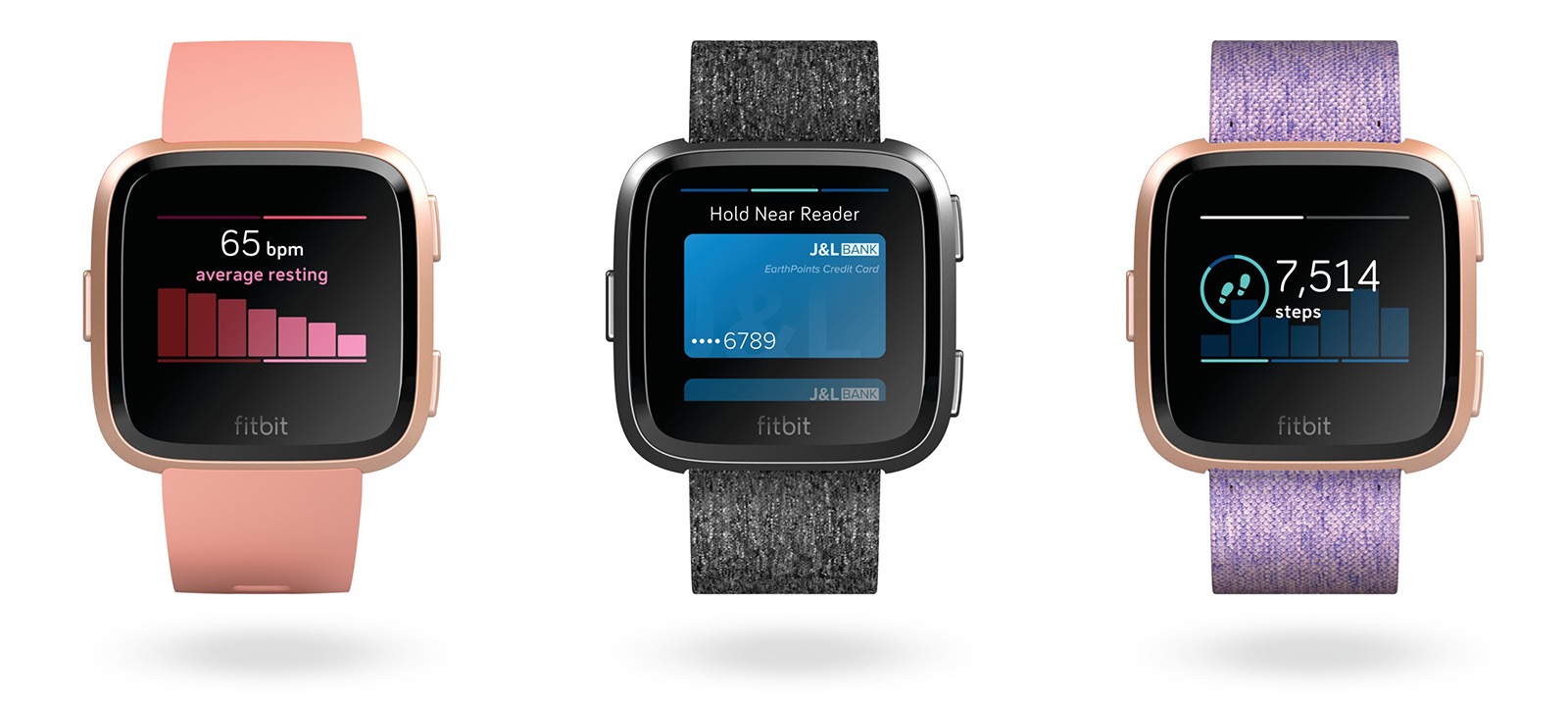
The display and the Apps are managed via touch and button controls, according to the needs: the fluidity of movement is generally good but not 100% perfect but it is a venial sin considering the strong compromises made for autonomy.
Here and there is something to fix, like a window in the smartphone app that warns that the model does not support alarms, while it is possible to manage them directly from the Versa's display.
Finally, the functioning as a real smartwatch, which considering the possibilities of the Versa appears only a small part: natively it is able to show all the alerts that appear on the smartphone, even if these must be activated manually from the smartphone App: it also shows calls with the contact's name, and allows you to answer (but not speak).
As far as SMS messages are concerned, they are displayed and, for the moment only on Android, allows a quick response: Fitbit is able to have the same function also arrive on iOS, but not at the moment.
The Fitbit circuit
One of the strengths of Versa, as on the other hand of all Fitbit models, is undoubtedly the App of the same name, which merges with the smartwatch offering an indissoluble common experience, even if obviously Versa works for two weeks even alone, storing the data and waiting for the moment to synchronize it with the online database.
Unlike Apple, for example, Fitbit's choice to centralize everything in an App that shows the state of health and the physical and activity progress you like and is certainly much less dispersive. Just as the cloud is very nice, free, provided by the App that allows you to easily change smartphone (from iOS to Android and vice versa) and bracelet or smartwatch in total freedom, sure that the data will always be stored online and ready to be recalled.
The system is also able to detect data overlaps (for example if you wear a smartband and a smartwatch at the same time) and automatically offer priority to the most advanced device, without counting the steps twice.
The choice not to open up to the most famous systems such as Apple Health and Google Fit was controversial at the time but today it seems sensible, especially to preserve the identity of the community, which is very strong: however, we do not like the impossibility of simply import data from other devices and systems, a factor that would be very convenient not only for those who, like the writer, rent their wrists (and not only) to different brands but also to those who come from another bracelet or smartwatch and would like continuity or even simply a painless step instead of a restart.
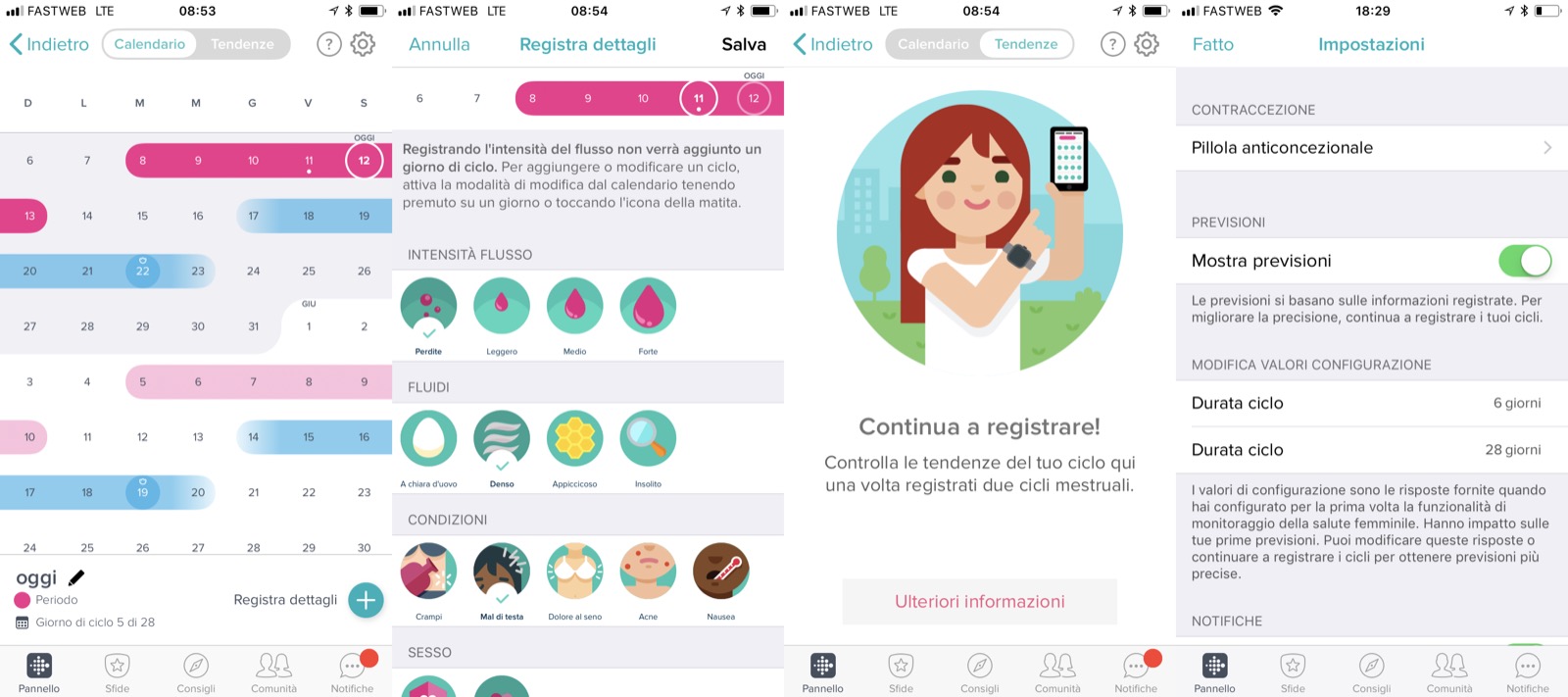 The new cycle control function, available for all female profiles
The new cycle control function, available for all female profiles
The App
As already mentioned, the Fitbit App is very nice: on the one hand it offers a quick and clear consultation both from smartphones and from Mac and Windows, given the synchronization it can also be done from a computer and the data detectable through the web page of your account.
But it is the number of integrated functions that amazes: in addition to the measured data (steps, floors, calories and minutes of activity), the indication of heartbeats both on average and in real time (with indication of the fat margin) is also available with Versa. burned) but above all the detection of sleep, a factor to which the writer cares very much.
The new functions in this specific area, already seen on Ionic, offer a complete when of the progress of our body during the night, with awakenings, light and deep sleep phases and above all indications on the average calculated based on the physical parameters reported.
But the App also offers some games: for example, it is possible to simulate some famous walks, from the New York marathon (57,000 steps calculated) to the tour of the Yosemite Valley (35,000 steps) up to the Pohono Trail (62,500 steps): all paths that we can carry out virtually wherever we want and even in several stages, with medals and prizes on the intermediate stages.
Added to this are the feedback from the Fitbit community, like a small social network, with challenges between participants and especially between friends: for those who want more, Fitbit Coach is available, a separate App with dedicated paid content.
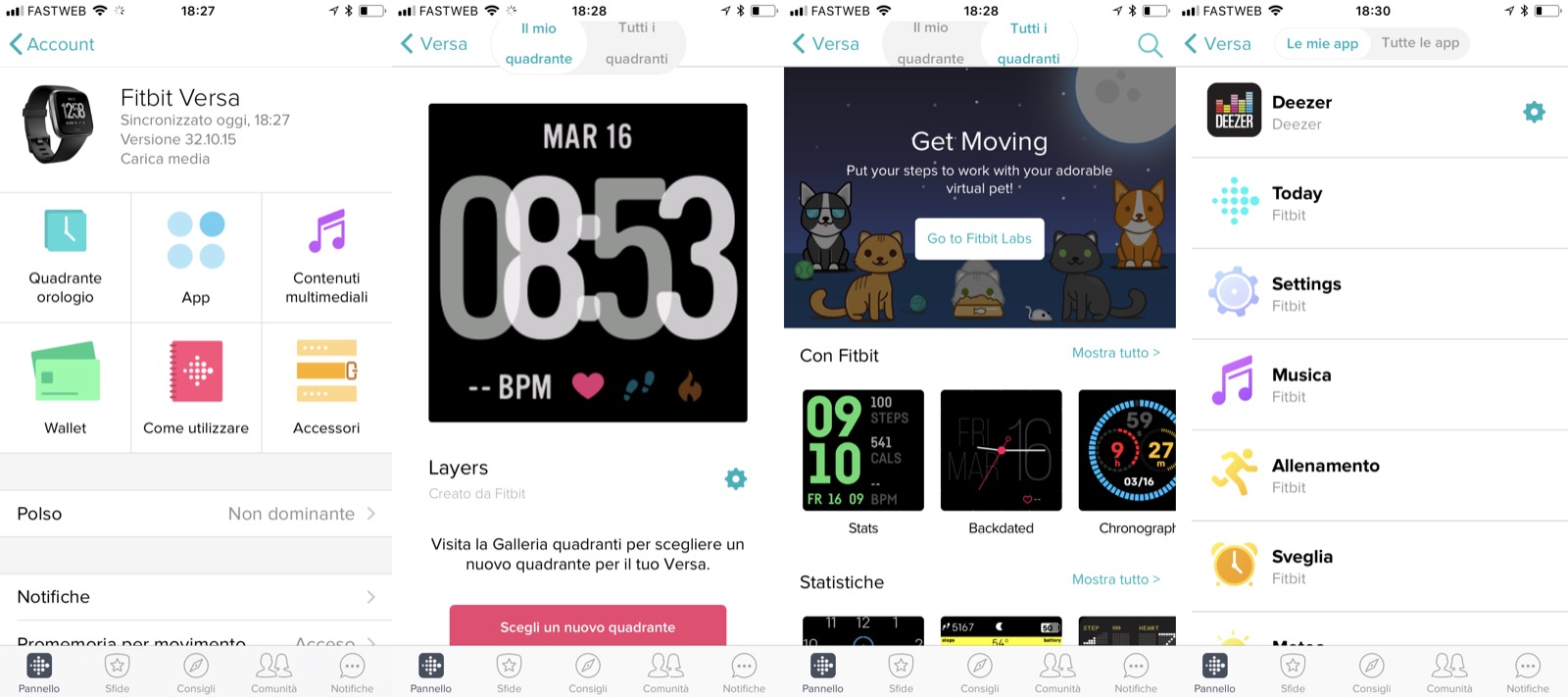
Recent news instead, it is a new function capable of monitoring the female cycle and, interfacing with the movement and sleep data detected by the bracelet, capable of offering a very comprehensive overview of the physical state, very useful for individual personal assessments on stress and regularity (and also to plan the arrival or otherwise of the new generations) but also for discussions with the doctor, who can thus have a much more detailed plan of the progress of physical mechanics in a particular period.
Apparently at the moment the function appears exclusively to all users who have registered as women within the App and the results cannot be shared except by showing their smartphone or browser window directly to interesting users.
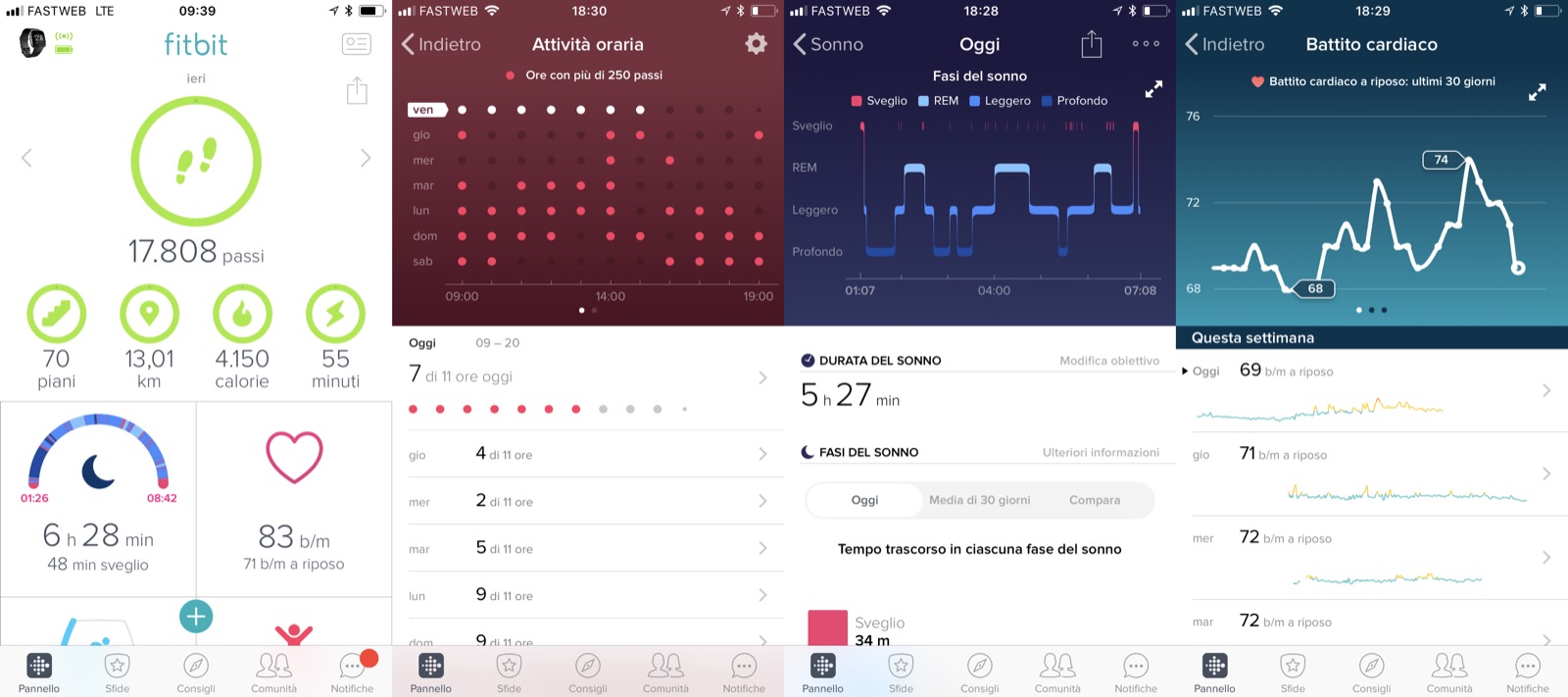
Quickly
Although the Versa's appearance is, as mentioned, much more casual than the other Fitibit models, the internal functions remain linked to a sporty DNA: ergo, the model does not hold back when it is time to sweat for real.
The Training functions, available directly from the Versa App or with a click on one of the buttons, open to a minus where several programs have already been pre-packaged: Running, Bike, Swimming, Weights, Treadmill, Interval Exercise and Exercise (free ) offer interesting adaptations to the dial and the detection system, with in the case also active feedback on the wrist with vibration.
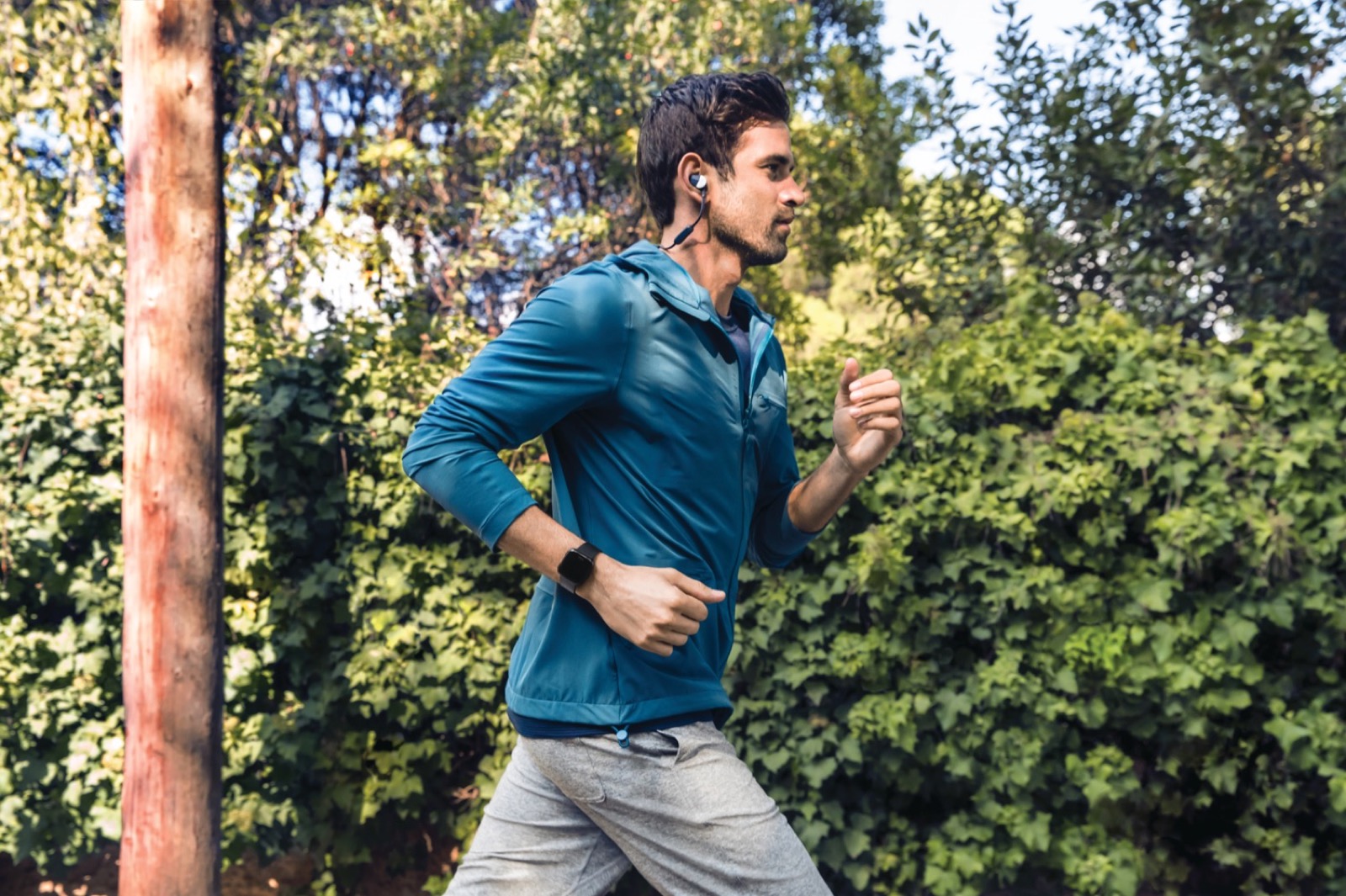
During operation, the display shows the basic data but it is also possible to view other data with a simple tap: the absence of GPS prevents the Versa from being completely independent like the Ionic (provided that the GPS data is of interest, it also depends on the sport ), but at the same time an internal memory and the Bluetooth chip allows us to use a pair of headphones and listen to the music recorded inside it completely independently.
In this regard, we really liked the possibility of using the Deezer circuit for streaming music: the circuit, which is normally in demo for a month, allows us with the purchase to extend the period to three months (like Apple Music, will it be a coincidence?) And to save some playlists in the Versa (there are some written just for Fitbit) for offline listening.
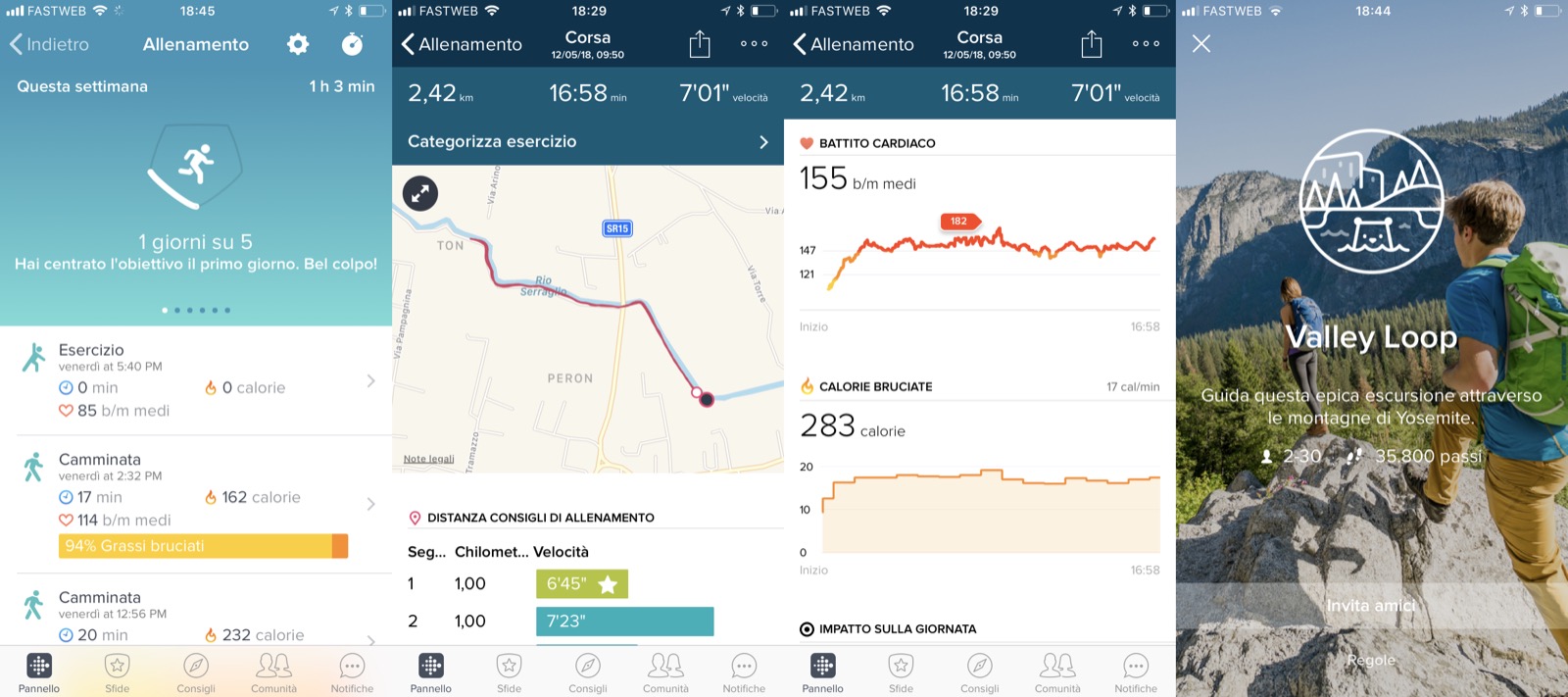
Flyer, help around the house
To optimize the music we tried by associating various types of Bluetooth headphones to the Versa, with mixed results: the tests were done exclusively during physical activity, mostly running, believing that in everyday life the (limited) musical choice of the Versa would be limiting, having an iPhone available and the Deezer App with an incredible library usable via 4G.
We had the best experience with Fitbit's Flyer headphones, which perhaps due to construction characteristics, perhaps due to signal affinity, were the ones that best suited for use with the smartwatch.
During the activity the music is heard very well (compatibly with what a bluetooth transmission can offer) and also some uncertainty here and there was however sporadic, probably given by a signal peak (since even during the activity we have always brought iPhone with us).
From an ergonomic point of view, the Flyers are comfortable, light and offer a large range of accessories to adapt to all types of ears: in our opinion the cable should be perhaps a couple of centimeters longer to better adapt to even the most generous necklaces and the rubber that covers the cables is perhaps less viscous because when sweating becomes high, it tends to slide a little on the skin.
For the rest, the musical response seemed very good, really, as well as the wide compatibility: obviously we also tried the pairing with an iPhone, which gave even better results. The only real flaw of the Flyers is certainly the price: the quality is there but in our opinion the price is perhaps exaggerated also considering the competition.
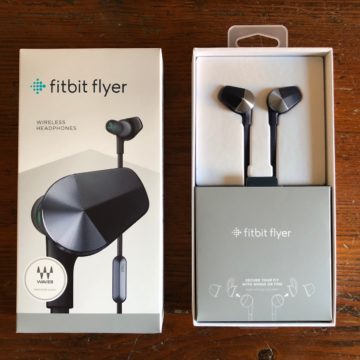 The fitbit flyer packaging
The fitbit flyer packaging 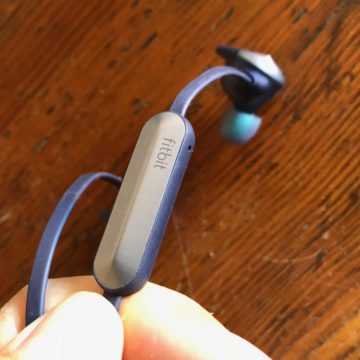 out of the box
out of the box 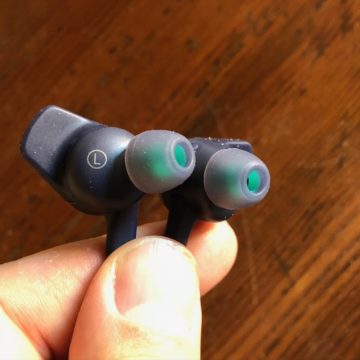 a detail
a detail
Final considerations
Versa is not Fitbit's most powerful smartwatch, not the cheapest, not the biggest or the smallest, but its inherent mix of design, functionality, community membership, charm and, why not, the beauty and brilliance of the display. make it the model that the cards on the table to become the best-selling of the entire list of the Californian house.
Lightweight, inviting, powerful enough and with a battery that lasts four days (and four nights, a factor not to be underestimated) Versa is, in our opinion, the main competitor of the Apple Watch, a model that has dominated the market and the market so far. 'attention of the media, and considerably surpasses all Android Wear models currently on the market, remaining behind only more dedicated sportwatch models, towards which a direct comparison would be out of place.

The details to put in place are very few, for a model that arrives on the market with top-level hardware and software features and an App that can really make a difference in the evaluation.
All Fitbit products are distributed by Attiva, and are available in the best consumer electronics stores in the peninsula, but you can also find them online on the official Fitbit website and on Amazon in various colors of the case and strap (also for Flyer)
For those wishing to deepen the Smartwatch and Fitness Tracker topic with a look at all the current production we recommend “SmartWatch 2.0”, the electronic book available on the iBooks Store and Amazon Kindle Store for 4.99 euros.
Pro
Against
Price
199.99 Euros (Normal Version) or 229.99 Euros (Special Edition), 129.99 Euros (Flyer). Fitbit Versa can also be found on Amazon.
,,





